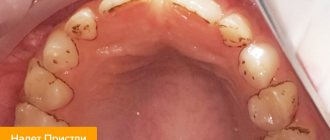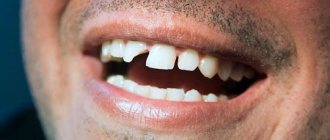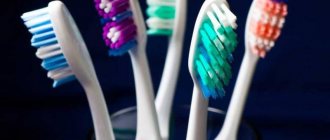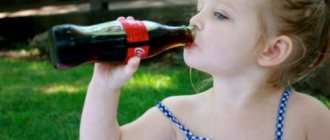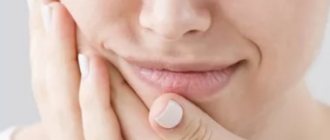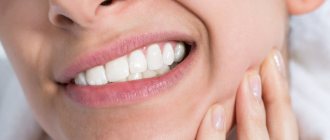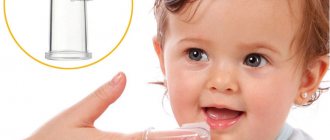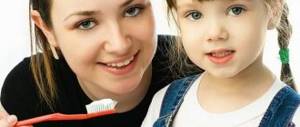Treatment of loose stools in an infant
Having determined the severity of the baby’s condition, the doctor decides to prescribe medications.
The main goal of therapy is to prevent dehydration, additional infection and taking unnecessary medications. Antibiotics are prescribed only in case of bacterial infection. Their uncontrolled intake will aggravate the situation, as will an excessive amount of sweets and fruit juices in the baby’s diet.
If diarrhea in children lasts a long time, the following will help get rid of it:
- drugs to slow down intestinal motility (reduce the number of daily bowel movements);
- prebiotics to normalize intestinal microflora;
- absorbents to normalize the intestinal walls;
- immunomodulators and vitamin complexes that increase the child’s body’s resistance to infections;
- drugs to prevent dehydration (normalize acid-base balance).
With the permission of a doctor, you can use traditional medicine recipes. Taking decoctions of chamomile and sage soothes the sensitive digestive system and has an antibacterial effect. You can make a mixture of honey and dried ginger root powder and offer it to your child once every 4-5 hours.
How to help a baby?
The best option for helping children under one year of age is drinking with an oral dehydration solution. However, diarrhea is often associated with other symptoms, which can cause a new mother to sound the alarm. Based on the condition of the baby, treatment tactics are selected:
- if the child looks lethargic and has a fever, you should give him medications based on ibuprofen and paracetamol;
- in the first 3 days you should not get rid of indigestion with drugs that can stop it (Stopdiar and others), the body can cope on its own;
- if there is an accompanying runny nose, you should use vasoconstrictor drops recommended by your doctor (more details in the article: how to treat a runny nose due to teething?);
- if irritation appears on the baby’s skin due to liquid feces, it is necessary to protect the epidermis with panthenol cream;
- if your gums itch, you need to buy a teether;
- You should not give your baby crackers and other hard foods (the baby may choke on an accidentally broken piece);
- it is not always possible to immediately recognize pathology by the type of stool, with the exception of impurities of blood and mucus;
- green stool should alert you, however, it can also be a variant of the norm if foods high in iron were present in the baby’s diet (for more details, see the article: normal and healthy baby stool).
Doctor Komarovsky's opinion
Dr. Komarovsky considers it necessary to treat indigestion when it lasts more than 3 days. During this period, baby teeth come out and diarrhea gradually subsides. Do not delay treatment in abnormal cases:
- vomiting is added to the disorder;
- foamy stool, blood or mucus in the stool (we recommend reading: symptoms and treatment of foamy stool in a child);
- green diarrhea (more details in the article: what to do if a child has green diarrhea?);
- there is severe dehydration due to diarrhea;
- There is increased salivation, a runny nose, irritability, and lack of appetite.
Treatment tactics
The first stage of getting rid of diarrhea in a child is to restore the deficiency of water and salts (see also: what to feed a child with diarrhea and other disorders?). The therapy lasts for 4-6 hours, during which the baby is soldered with a solution of salts and glucose. In case of mild dehydration and no vomiting, the baby initially needs to drink 200-800 ml. liquids. For a child weighing up to 6 kg. 200-400 ml is enough, weighing from 6 kg - 600-800 ml. The liquid is given in small portions at intervals of 5-15 minutes.
The second stage involves further replacement of fluid loss if indigestion persists. For mild dehydration, the baby needs an additional 50 ml. water per 1 kg. weight, with strong - 100 ml. For example, a baby with mild dehydration weighing 5 kg. You should drink 400 ml within 6 hours. Regidron solution, and then another 300 ml. in 6 hours. The regimen is used until stool normalization.
Why is it important to stay hydrated during diarrhea?
Frequent bowel movements lead to dehydration of the child, which can be recognized by:
- changing the color of the lips, acquiring a brighter shade;
- dryness of the mucous membranes of the outer surface of the mouth and other skin;
- the smell of acetone released from the child during the exhalation stage (for more details, see the article: reasons for the smell of acetone on the breath of a child);
- rare urination;
- increase in saliva viscosity.
If fever is present as a symptom of teething, it is necessary to increase the amount of water consumed by the child. Ignoring this condition leads to the need for medical care, which, in the case of moderate dehydration, is treated by placing IVs with saline, and in severe cases may require placing the mother and baby in the intensive care unit.
Loose stools
Can there be diarrhea or diarrhea with gastritis?
Loose stools are not considered a mandatory symptom when a child is teething. It is also not a sign of illness if its duration does not exceed three to five days.
The smell and color of children's feces should remain the same in the absence of infectious or other diseases of the baby's gastrointestinal tract.
Does it happen and for what reasons?
When teething, young children often experience diarrhea in combination with elevated temperature (up to 38 degrees) and swelling of the gum mucosa.
Diarrhea during teething is explained by the following reasons:
Along with diarrhea, the baby may also experience short-term vomiting, which is a consequence of the same increased salivation.
What, frequency of bowel movements, how many days does it last
During teething, the frequency of bowel movements should not exceed five times a day. The stool may be watery, but have the usual smell and color.
Diarrhea in a baby during teething is accompanied by an increase in the acidity of the stool. For this reason, the baby may experience irritation in the anus and the skin next to it.
It is recommended to change diapers more often during this period. After each bowel movement, wash the child with running water. You should not use special napkins for this.
How many days does a baby spend teething? The duration of diarrhea depends on the individual characteristics of the body, but it should not last longer than five days. On average, this symptom lasts three days.
Is treatment required?
Diarrhea in a baby during teething is often complicated by dehydration, which can be recognized by the following signs:
In this case, the child should be given solutions of Regidron for children, Humana Electrolyte and their analogues to drink, according to the instructions.
You can also prepare a similar solution at home. To do this, dissolve in 500 ml of boiling water:
Cool to room temperature and give the child a teaspoon to drink every quarter of an hour.
When teething, you should be wary of developing an intestinal infection due to the fact that children put foreign objects in their mouths, trying to soothe itchy gums.
Given this feature and the decrease in immunity during this period, the likelihood of infection of the child’s gastrointestinal tract with pathogens increases.
To prevent such diseases and relieve the baby’s discomfort, you can use Orajet, Kamistad and their analogues, which not only relieve pain, but also have an anti-inflammatory effect.
If the baby is breastfed when teething, it is recommended to put him to the breast more often. This will prevent dehydration and support your immune system.
general information
Parents look forward to the appearance of a child's smile with teeth with special delight. The baby looks very cute with each new tooth, and very soon he will be able to chew food in full. Mothers feel joyful and excited during this period of their child’s life. Loving parents want to help their child cope with the unpleasant sensations that appear in the mouth. Each child is a unique individual, the course and symptoms are also different. You need to find out when the first tooth appears, what will appear in the child, whether it is possible to cope with the peculiarities of this process at home, or is it better to consult a doctor; Is this natural event occurring normally, or are there deviations and possible complications? There are many answers on the Internet, some true and some not so true. Let's figure out how to properly go through the process of teething in a child with minimal stress for him and for mommy.
Features of feeding and drinking regime of infants during teething
Chickenpox or not? Can diarrhea occur with chickenpox?
If your baby's teething is accompanied by diarrhea, then you need to feed him properly so that there are no problems with digestion.
In such cases, the child is provided with plenty of fluids to prevent dehydration. We have already discussed above why it is dangerous and how it manifests itself. Moreover, if he does not want to drink a lot at once, then you can offer liquid in small doses. For example, give water to drink from a spoon or from a dispenser for antipyretic drugs. If the child is breastfed, then this issue is resolved differently; with artificial nutrition, you cannot change the formula, do not overfeed the child, but if necessary, increase the frequency of feeding.
If the child is more than six months old and has already been introduced to complementary foods, then do not temporarily add anything new to his diet. The baby needs to be fed frequently; food must be thermally processed and thoroughly pureed.
Other feeding tips for teething diarrhea in babies over 6 months include:
- do not let them drink juices;
- do not feed fatty foods;
- vegetables and fruits should not be raw, only after heat treatment;
- do not give the baby anything that would promote fermentation;
- If you are no longer breastfeeding, limit dairy products;
- Light porridges and soups with water are recommended.
When a child suddenly begins to have loose stools, this may not necessarily be due to teething. In such cases, be sure to remember what you fed the baby the day before; loose stools can be caused by inappropriate food. In particular, allergies to certain foods can also manifest themselves in the form of loose stools.
In this case, don’t force your baby to eat if he doesn’t want to, even if he loses a little weight, there’s nothing wrong with that. Over time, the child will meet his own need for food, but dehydration can be dangerous. For this reason, he must be forced to drink, but he cannot be forced to eat. And all other actions must be coordinated with a specialist.
Teething symptoms
The first baby teeth appear at about 5 months of age. The process is gradual and lasts about two years. The release of each tooth is accompanied by a local decrease in immunity, which increases the risk of pathogenic microorganisms entering the body. This is why the emergence of another baby or molar tooth is so often accompanied by a physiological disorder of the stool.
In order to take the correct treatment measures, it is important for the mother to recognize that diarrhea in a baby is not related to serious infections. Other symptoms of teething will help with this:
- swelling and swelling of the gums;
- excessive salivation;
- the need to chew something hard (teether, toy, bagel);
- anxiety;
- elevated temperature (up to 38 ºС);
- vomit;
- constipation (occurs in bottle-fed babies);
- diarrhea.
Changes in stool, swollen gums and the baby’s desire to chew on everything that comes in its way are sure signs of teething.
How many days does diarrhea last during teething?
Diarrhea (diarrhea) due to nervousness: can it happen, how to treat it
If loose stools occur periodically or last a couple of days, this is normal and you should not worry about it. If diarrhea lasts more than three days, you should consult a doctor, because the cause of diarrhea can be not only the appearance of teeth, but also the penetration of infection.
If the baby is healthy and a malfunction in the intestines occurs due to teething, the stool will normalize after the inflammation in the mouth disappears.
When is loose stool a reason to consult a pediatrician?
Parents need not worry if teething is accompanied by diarrhea with the following characteristics:
- Diarrhea does not bother the child;
- The frequency of bowel movements is no more than five times a day;
- The stool is of normal color without any mucus or blood.
If the diarrhea turns green or contains mucus, you should consult your pediatrician, as an intestinal infection or other gastrointestinal disease may have begun to develop.
The appearance of a high temperature and stool with a changed unpleasant putrefactive odor is a reason to immediately visit a pediatrician, especially if the child becomes lethargic, weak, and loses appetite.
So, you cannot do without medical help in the following cases:
- bowel movements more than 6 times a day;
- loose stools for more than 3 days;
- impurities appear in the stool;
- temperature rise above 38 degrees;
- The child is capricious and does not allow touching his stomach.
Consequences and complications of diarrhea during teething
Prolonged diarrhea is fraught with dehydration and disruption of water-salt metabolism, which affects the functioning of all organs and systems in the body. In severe cases, seizures or disruptions in the functioning of the heart, respiratory system, kidneys and central nervous system occur.
How to treat diarrhea during teething?
Treatment of diarrhea due to infection should be carried out by a pediatrician, but if the cause of the disease is teeth, therapy can be carried out at home. The following measures apply:
- Drink plenty of water - to prevent and treat dehydration, you need to give your baby plenty of water.
- You can use drugs that restore intestinal function: Linex for children, Bifiform Baby, Hilak-Forte, Bak-Set and Maxilak Baby.
- If the child is breastfeeding, the mother needs to follow a diet: exclude fresh berries and fruits, fatty foods and meat and add rice, jelly, dried fruit, bananas, low-fat soups and cereals to the diet.
Please note: you should not give your baby antibacterial drugs without a doctor’s advice!
Traditional methods of treating diarrhea
Traditional medicine recommends decoctions of medicinal herbs to strengthen stool:
- mint and chamomile tea;
- decoction of blueberries and hawthorn fruits;
- infusion of sage leaf.
Medicinal herbs will not only help with diarrhea, but will also calm the child, boost immunity, and eliminate inflammation. However, herbs have restrictions on age of use and health status, so before turning to traditional medicine, consult your pediatrician.
The process of teething in children can be quite complex. In case of diarrhea, you can use some medications, but first of all, you need to follow your diet. If you suspect any complications, contact your pediatrician.
Liana Mokhtari, dentist, especially for Mirmam.pro
Symptoms
Teething is a physiological stage of development for a baby.
The symptoms at the beginning of teething are similar to a cold. Therefore, it is important to understand what set of symptoms indicates that baby teeth will soon appear.
- The first symptom that a mother pays attention to is gum swelling
, a hematoma may appear. The gums are swollen to the touch and look blue.
- Temperature rises
, the baby’s general well-being worsens. In this case, you need to monitor how he behaves and feels. If the temperature does not decrease, you should consult a doctor.
- Increased salivation
. This is beneficial for the gums, since saliva has bactericidal properties and prevents bacteria from multiplying.
- The child feels an unpleasant itch
, he drags into his mouth any objects that come in his way.
- Decreased appetite.
Eating causes discomfort, since the gums are traumatized by the teething process, and the child refuses to experience pain again when coming into contact with food.
- The child is naughty
Rashes and spots appear on the skin around the mouth, as excessive saliva gets on the skin and causes pain.
- Restless sleep
due to discomfort in the gums.
- When a tooth can come out, White spots begin to appear on the gums
. If you tap on the stains with a spoon, you will hear a sound characteristic of a tooth.
What to pay attention to
The appearance of baby teeth is one of the most uncomfortable periods in life. At the same time as the physiological natural process, colds and infectious diseases can occur. They need to be differentiated for successful treatment. If the symptom is the result of tooth growth, treatment is limited to reducing pain. In case of an infectious lesion, you need to find out the cause and select the appropriate treatment with your doctor. What parents need to remember during this time:
- If the body temperature is above 38.5 degrees and lasts longer than one day, this indicates the presence of viruses in the body. Only a doctor can prescribe medications to get rid of the disease.
- A cough accompanied by a high temperature, as well as a runny nose, indicate an infection.
- The presence of diarrhea and vomiting is a direct indication of a virus or poisoning.
- If a child is covered with a severe rash, this indicates an allergic reaction or a viral disease (exanthema).
Cough during teething in children
Excessive saliva production causes breathing difficulties. It is still difficult for a child to swallow saliva at an early age, so he reflexively begins to cough. Here the mother needs to be careful to distinguish this cough (which does not require treatment) from a cold, which needs to be treated with medication. Often the child coughs while lying down, as excessive saliva production makes breathing difficult. The secretion also gets into the nasal passages, and the child develops a runny nose. These are the consequences of excessive salivation.
Cough is not a constant symptom, if the cough with wheezing, elevated body temperature, or runny nose does not go away, a visit to the doctor
. You cannot let the course of the disease take its course.
Diarrhea (diarrhea) during teething
Diarrhea is a consequence of problems with the gastrointestinal tract.
If a child swallows drool along with food, diarrhea is a reaction to viruses entering the body through the mouth. The appearance of new teeth in itself does not cause diarrhea, the connection is indirect.
- The secreted saliva partially enters the gastrointestinal tract and dilutes the feces, diarrhea appears as a consequence of this process.
- The gums swell and itch, the child intuitively wants to scratch his gums on some hard objects. This is an easy way of infection of the gastrointestinal tract, which contributes to the development of diarrhea.
- By the second half of the baby’s life, the mother introduces new complementary foods into the diet. If the child’s body cannot cope with the digestion of foods that are unusual for him, this can cause loose stools.
- Teething is stressful for the body
, and diarrhea is the response of the human body during this period.
Diarrhea cannot be called the main symptom of the teething process; it is one of several.
A consultation will help eliminate the problem, identify the real cause, for which the doctor will select medications individually.
You cannot self-medicate
by giving your child immunomodulators or antiviral drugs without a doctor’s prescription. If the stool is green and there are inclusions, masses of foamy texture, if the child needs to use the toilet more than five times a day, you need to find a qualified specialist who will definitely prescribe the necessary treatment and conduct an examination to identify pathological processes.
Vomiting during teething
Vomiting does not indicate teething, nor is it an indicator of teething.
Factors that provoke vomiting.
- Excessive salivation can irritate the uvula, and the body's response will be vomiting.
- Itching of the gums and the child’s desire to pull various objects into his mouth in order to chew is a potential factor in the occurrence of infection in the gastrointestinal tract. Vomiting is the body’s reaction to infection getting inside.
- If a child reacts by crying to discomfort in the gums, refuses to eat for a certain period of time, and then, when hungry, eats a lot, or takes large sips, this causes air to enter the stomach. The reaction to a large amount of food is vomiting.
- Colds with fever often cause vomiting.
- If a baby is force-fed, overfeeding may cause a gag reflex to develop.
From the above it is clear that there are many reasons for vomiting. It is not a consequence of this physiological process in the child’s life. It is possible to exclude situations preceding vomiting. For example, do not overfeed the child, do not force feed him, or while he is crying. Vomiting more than twice a day with a high body temperature at the same time indicates a possible infection, and the child should be taken to the doctor.
What temperature can it be during teething?
An increase in temperature is natural, since the gums are “cut” by the teeth and the integrity of the tissue is compromised. The temperature does not rise above 38-38.5 degrees.
The child strives to get rid of the itching, uses improvised objects, toys, and puts them in his mouth. The likelihood of infection is very high.
The temperature rises slightly and lasts for a couple of days. If the fever does not subside, you need to show the baby to the doctor. An elevated temperature does not always occur, which means that this is not the main symptom of the appearance of new teeth.
How can I help my baby?
Most often, the child’s well-being worsens during the period when the first teeth appear. He becomes capricious, irritable, and picky about food. May completely refuse food, especially if she is breastfed. Any parent who worries about their child will want to somehow alleviate his suffering.
If you have already determined for sure that the cause of diarrhea is teeth, then the first thing to do is to thoroughly wash all the objects that surround the child. In the room where the baby spends most of his time, do wet cleaning and ventilation twice a day.
There are special rubber teethers that can be bought at any children's store or pharmacy. They have small bubbles on their surface that massage the child’s gums and soothe itching. It’s better to buy several pieces so that you can immediately replace a massager that falls on the floor.
Teething is usually accompanied by pain. The baby's gums hurt because they are traumatized. The severity of pain is individual for each child and depends solely on the level of the pain threshold. If the child is suffering, then you can lubricate the swollen places in the mouth with special pain-relieving ointments: Kalgel, Kamistad, Baby gel, Dentinox. They contain Lidocaine and substances that will simultaneously cool the gums. But they should not be abused. All drugs of the NSAID group (non-steroidal, anti-inflammatory) and in large quantities they have a systemic effect on the body. The effect of application occurs immediately, but lasts only half an hour.
Temperature during teething usually does not bother the child. But if the child is suffering, then it is permissible to give any child antipyretic drug (Nurofen, Panadol, Cefekon). They are available in the form of syrups or suppositories, which makes them easier to use for very young children.
The snot during teething is not abundant and liquid. Their treatment is not required in this case. No drops are needed. You can simply periodically rinse the nasal cavity with Aquamaris solution and thoroughly clean the baby’s nose.
At the discretion of the leading pediatrician, medications such as Regidron, Imodium or Smecta may sometimes be prescribed. They are a powder made from a mixture of glucose and salts. One sachet should be dissolved in a liter of boiled water, cooled, and given to the baby in small portions. The drug Linex is almost always used. It helps restore the natural microflora in the intestines and normalize its function.
During the teething period, you should adhere to some nutritional rules.
It is necessary to temporarily exclude dairy products and fresh fruits from the diet, as they can have a laxative effect. You need to add strengthening foods to your diet. These include: boiled rice, mashed potatoes, baked apple and jelly. Rusks and drying can also help in the fight against diarrhea. If the baby has not yet been introduced to complementary foods, and he eats only breast milk, then the mother should also adhere to this diet.
It is necessary to remember about hygiene. Frequent loose stools cause irritation in the anus and perineum. This can further worsen the child's well-being. Therefore, after each bowel movement, you need to be ready to immediately wash your baby, dry him thoroughly and apply plenty of powder. After this procedure, it is advisable to leave him without a diaper for at least 20 minutes.
How to distinguish whether this is normal or pathological?
Every child has habitual eating behavior. For one person, the norm is to walk “big” - 1 time a day, for another - 3 times. Physiological intestinal dysbiosis is typical for infants.
Adaptation of the digestive system to independent life in all infants occurs at different speeds. The presence of periodic disorders and their nature depend on age, the chosen dietary pattern, and the colonization of the gastrointestinal tract by bacteria in the maternity hospital.
It is important whether the baby immediately began to receive colostrum and milk. Or he was formula fed. Therefore, it is necessary to keep track of what has changed. Not in comparison to others, but to yourself.
Any significant change is a cause for concern. The number of bowel movements more than 4-5 times a day is a pathology in any case.
Could diarrhea during teething be a sign of an independent disorder? Yes. The reason is acute dysbiosis caused by ingestion of inappropriate food.
The consistency and smell of the contents of the pot are important. Foamy stools with a strong, uncharacteristic odor, mucus, and red/green discharge are signs of an intestinal infection. It is necessary to urgently call a doctor.
Just looser stool than usual is normal.
Excessively frequent loose stools lead to a dangerous condition - dehydration. Signs of dehydration:
- Dry skin, tongue, mucous membranes. The lips become bright red, hot, and dry to the touch.
- Viscous saliva.
- A small amount of tears when crying.
- Rare, scanty urination.
- The child is lethargic, drowsy, passive.
- Dark, concentrated urine.
- The skin takes on a grayish tint.
- The eyes are sunken, with circles around.
- Sometimes there is an uncharacteristic odor in the baby’s breath, reminiscent of acetone.
Important: This condition must not be allowed to happen! Treatment of dehydration is carried out in a hospital setting. If you cannot give your baby something to drink (for example, due to constant vomiting), call an ambulance immediately.
Immediate causes of diarrhea:
- Bacterial infections. They are caused by: Salmonella, Shigella Zone or Flexner (causes of dysentery), Campylobacter, Staphylococcus aureus, and certain types of Escherichia coli.
- Rotavirus infections cause 80% of cases of diarrhea in infants. Quickly lead to dehydration.
Important: If you suspect any acute intestinal infection, you should immediately consult a doctor.
Improper organization of baby food is another cause of intestinal upset. The baby does not lag behind in development, does not lose weight, the stool is brown, without impurities, but liquid. This is due to an excess of thinning foods that promote flatulence: fast carbohydrates, carbonated drinks, fruit juices.
Such diarrhea can be treated by adjusting the menu. Proteins and fats are added to the diet, and the amount of sweets is reduced.
What to do?
If a child is bothered by loose stools, there is no need to immediately start treating him with medications.
If baby teeth begin to cut after 6 months and do not cause an exacerbation of the symptom, then it is better to help the child in such a situation using ordinary means. Dr. Komarovsky recommends giving your baby plenty of fluids. This is due to the fact that a newborn’s body can lose a large amount of fluid during diarrhea. Therefore, a nursing mother can put her baby to her breast more often. Treatment of indigestion should not begin with the administration of antibiotics, as this can harm the growing body.
Treatment with medications is usually used if the newborn's loose stools last more than 4 days and are of increased frequency. It can remove large amounts of water, salt and other minerals from the body of children, which will lead to more serious diseases. Violation of the water-salt balance must be restored with the help of effective and fairly safe drugs. For such treatment, Regidron is used, which has proven itself well. A child should consume about 40 ml of this solution per kilogram of his weight per day.
Also, Pedialight and Naturallight solutions help restore the balance of substances in the body and strengthen the baby’s stool. It is not recommended for parents to treat it independently with these drugs without a doctor’s prescription. Some medications are prescribed taking into account the characteristics of the body and individual tolerance.
You should add bananas, baked apples, jelly, tea and compotes to your diet. It is necessary to exclude the consumption of meat and fatty foods, dairy products, fresh berries and fruits from the diet.
You can also resort to traditional medicine. You should be selective as newborns are sensitive to herbal preparations.
When does a child cut teeth?
When does a child cut teeth? Each baby has its own age when teeth begin to emerge. Despite the fact that all children are different, there are still general rules for the development of children and, accordingly, terms and periods of development.
So, children's teeth begin to erupt at the age of 6 to 9 months. Initially, you can see the first 2 teeth on the upper jaw and then the same 2 teeth appear on the lower jaw. At approximately 9 months, the baby's lateral incisors emerge, both above and below. But from 1 year to 1.6 years, small molars appear (also in the amount of 2 pieces). At one and a half years old - maximum 2 - you can see fangs in the child’s mouth.
The number of baby teeth in small children is 20. Therefore, you don’t have to worry if they suddenly don’t grow any further. They will definitely appear as soon as your baby grows up a little.
Duration of disorder
How long does this phenomenon last? Teething is not a quick process and takes a long time. In this regard, the restless state of children, as well as diarrhea on the teeth, lasts for several days. Both the little person and, accordingly, the parents get tired of this phenomenon. There are certain periods within which diarrhea lasts until teeth appear. How long can it last? The normal state is when the duration of diarrhea does not exceed 3 days. If the diarrhea drags on and does not stop after 3-5 days, it is recommended to contact a specialist to begin treating the child.
The cause of long-term intestinal upset may not be due to teething, but to the possible development of an intestinal infection or other disease of the digestive tract in children. What to do when teething? Is it possible to alleviate the condition, how long will it take and what actions should be taken to stop the diarrhea? The most important thing to do in such a situation is not to panic. The child feels the parents' anxiety and becomes more nervous, which further aggravates the situation.
What are the signs of normal loose stools? The frequency is no more than five times a day, the stool is of normal color, without any impurities, for no more than three days. In this case, diarrhea in children should not cause concern, and there is no need to treat it with special drugs. It is necessary to contact a specialist if the following changes occur:
- The child does not allow his belly to be touched.
- The frequency of stools is more than 10 times a day.
- Loose stools last more than three days.
- Various impurities appear in feces.
- Body temperature rises to more than 37.5 °C.
These symptoms in children indicate the development of an infectious disease or problems in the abdominal cavity that must be treated immediately. How much and how to treat children at home? What should be done if parents are convinced that diarrhea is a reaction to teething? It is still necessary to help your child; you can treat with symptomatic means. Low-grade fever does not require measures to reduce it. But with a strong increase, you need to do something that will facilitate relief - open the child, wipe him with a damp cloth, if the procedure does not help - give Paracetamol or Nurofen in the form of a suspension or suppositories.
What to do for pain in the gums in children? In this situation, it is recommended to use special gels that reduce pain in the gums in children when they are teething - Dantinorm Baby, Kalgel. They can be used throughout the teething period. They contain lidocaine, which will relieve pain for a while. To prevent your child from putting dirty objects into his mouth, you need to give him special teething toys, which must be carefully treated. If several teeth are being cut at once, you can use the same Nurofen or Panadol as an anesthetic and additionally apply pain-relieving gels to the gums.
Treat dehydration with plenty of fluids. This can be either plain water or juice, or treatment with special water-salt solutions that will prevent the development of severe dehydration. To maintain normal intestinal microflora, you can prescribe treatment with the following drugs - Hilak-Forte, Linex for children, Bifiform Malysh: they can treat any dysbiosis. These medications can stop diarrhea and shorten its duration by several days. Treatment should be continued for several days to completely eliminate the symptoms of this condition.
Temporary teeth
Timing of teething
Dental buds are formed during the period of intrauterine development. The eruption of the first teeth begins at the twenty-fifth week of the baby’s life. The lower incisors appear first, followed by the upper ones by eight months. The age at which baby teeth, called premolars, erupt varies from one to two years. The last to appear are the canines and second premolars, which occurs from sixteen to thirty months.
This teething schedule is optimal, but it is impossible to determine the exact timing. The process depends on the characteristics of the child’s body, the health of the mother during pregnancy and genetic factors.
Timing of teething in children in the table
| Type of tooth | Lower jaw | Upper jaw |
| Medial incisor | 6 – 10 months | 7 – 12 months |
| Lateral incisor | 7 – 16 months | 9 – 13 months |
| Fang | 16 – 23 months | 16 – 22 months |
| First premolar (baby molar) | 12 – 18 months | 13 – 19 months |
| Second premolar (baby molar) | 20 – 31 months | 25 – 33 months |
The order of teething in children
The teeth follow the principle of pairing, for example, if one fang appears, a second one should be expected soon. The sequence of teething is determined by nature based on the practical significance of dental units for survival.
The front teeth of the lower row grow first, then the upper ones come. The lateral incisors disrupt the order of teeth eruption; their appearance begins with the upper jaw. Then comes the eruption of chewing teeth - the first premolars. The last to emerge are the canines and molars. The process of teething in children is completed by the age of 2-3 years.
Diagram of baby teeth eruption in children
How to treat diarrhea
Regardless of how many days diarrhea may last, every mother wants to alleviate the child’s condition. This problem does not require any special treatment. Some parents give antibiotics thinking it will help.
But this cannot be done.
Therapeutic procedures for diarrhea from teething consist of the following measures:
- If diarrhea is repeated and profuse, then the child must be given a glucose-saline solution or buy Regidron powder at the pharmacy, dilute it with water and give it to the baby. This will help avoid dehydration. There are also drugs to reduce intestinal motility and normalize microflora. Fortifying medications can also help, but they must be given to young children carefully, otherwise they can cause intestinal obstruction. It is better to ask your pediatrician which drug to give.
- During teething, children constantly chew on everything. Therefore, all toys, teethers and everything that a child can chew must be thoroughly washed in hot water and baby soap.
- There are special gels. They block the passage of nerve impulses, thereby relieving pain. But they cannot be used often. You can smear your gums with such gels every three to four hours.
- You can also lightly massage your baby's gums.
- If blood is found in the stool, you must call a doctor; you cannot treat the child yourself.
It is necessary to increase the volume of liquid. But you should not give your child juices or meat broths. This will only increase the risk of dehydration. He should only drink water and saline solutions.
Some parents try to alleviate the baby’s condition with folk remedies. Rice water is a good remedy for the stomach. They need to feed the baby about six times a day, no more than 20 grams. Do not exceed the dosage, as diarrhea may worsen. You can simply give your child this rice instead of breakfast. This decoction is considered very useful and safe. Therefore, it is recommended for young children, pregnant and nursing mothers.
Teething is a very difficult period in the life of a child and his parents. Mom and dad want to alleviate the baby’s condition in every possible way. The main thing is not to miss the onset of the disease and consult a doctor in time.
What causes bowel dysfunction?
Why does diarrhea often occur during teething? There may be several reasons for this symptom. Pediatricians usually explain this reaction as follows. During teething, the baby's salivation increases greatly. At the same time, it affects the stomach and intestines, enhancing their peristalsis. Food these days enters the body in the same volume. Sometimes a child's appetite may even decrease. As a result, there is less solid stool. In this case, the body is forced to remove water. Such liquefied stools can be observed three to five times within one day.
Another reason for diarrhea during teething is infection. During this period, the baby’s gums are very itchy and painful. The baby puts into his mouth everything that comes into his hands. At the same time, the baby does not yet understand that some objects may be dirty and contain bacteria on their surface. As a result, pathogenic microorganisms enter the child's body. They cause fermentation and diarrhea. Sometimes in this case, vomiting, loss of appetite, weakness, fever, and so on may occur. It is worth noting that this type of diarrhea does not go away for about five or seven days. There may also be mucus and foam in the stool.
Treatment of diarrhea using traditional methods
Cook rice without salt and other spices. There should be 3 or 4 times more water than rice. Give the child rice water up to 6 times a day, 15-20 ml. Giving large volumes is strictly prohibited, as this can only worsen the baby’s already poor condition. You can give boiled rice as breakfast. It is better to drink it with very strong tea without sugar. You need to use peeled rice. This decoction is considered absolutely safe, since it is often prescribed to pregnant and lactating women.
The main thing is not to panic, but to calm down and follow all the advice, instructions and recommendations of a specialist. If you have any doubts, you should not be shy, but it is better to consult a doctor once again.
Diarrhea in a baby during teething - how many days can loose stools last in children?
The appearance of teeth in a baby is not only a responsible process, but also a painful one and, often, associated with various disorders. The bone tissue under the enamel of the fangs, cutting through the baby’s gums, affects the temperature rise, causes emotional changes, causes bowel movements and colic.
Experts explain the diarrhea that occurs during this process with a large amount of saliva secreted, which in turn affects peristalsis and the intestinal walls, causing disorders. In a normal course, the nature of the discharge differs little from the child’s usual stool, and the disorder lasts with a certain frequency for a short period of time. Experts recommend finding out the cause of the baby's bowel disorder, and if it is associated with the appearance of teeth, do not panic, but take the necessary measures to facilitate this difficult process.
How to help your baby with diarrhea?
The main task when dealing with diarrhea in a small child is to avoid dehydration, so it is necessary to force the baby to drink more.
After each bout of diarrhea, offer your baby a bottle of cool water. For prolonged or acute diarrhea, special solutions may be required to restore the amount of electrolytes in the body.
At the pharmacy you can buy Regidron for children, Humana Electrolyte or other similar powders. It is not recommended to use consolidating medications without a doctor’s prescription.
Video:
It is important to follow a gentle diet if diarrhea develops. If the baby eats the formula, then there is no need to change it, just follow the correct dosage.
If the child is breastfed, then the mother should avoid any foods that may irritate the mucous membrane: spicy, salty, smoked, milk.
If you have already started giving your baby complementary foods, it is recommended to temporarily postpone the introduction of new foods and exclude recently introduced dishes from the diet.
Purees from fresh fruits and vegetables, with the exception of bananas, can also have an irritating effect on the intestines.
Milk and fermented milk products, all fatty foods, concentrated and even natural juices should be excluded until diarrhea is eliminated.
Give preference to thermally processed vegetables: mashed potatoes or carrots, baked apples.
It is best to give porridge in water, especially rice and rice water, which help normalize intestinal function.
Include more firming and enveloping foods in your baby’s diet: jelly, dried fruit compotes, crackers and dried fruits, water soups.

